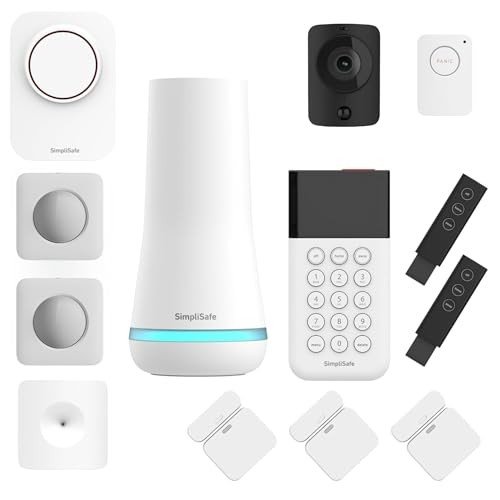The Reasons You're Not Successing At UK Lighting Company
The UK Lighting Company: Illuminating the Future of British Design
In an era where sustainability and aesthetics play a pivotal function in style, the UK lighting market has become a beacon of innovation. From trendy property lighting fixtures to remarkable options for industrial areas, UK lighting business are pressing the borders of creativity and performance. This post delves into the landscape of the lighting market in the UK, concentrating on leading companies, design trends, sustainability efforts, and often asked questions regarding lighting solutions.
Key Players in the UK Lighting Industry
The UK lighting market boasts several prominent business understood for their unique styles and dedication to quality. Below is a table showcasing some crucial players in the market:
Company Name
Expertise
Notable Products
Year Established
John Cullen
High-end domestic lighting
Custom-made design services
1981
Tom Dixon
Designer lighting
Renowned pendant lamps
2002
Anglepoise
Renowned job lighting
Original 1227 lamp
1932
FLOS
Contemporary design
Architectural lighting
1962
J Adams Lighting
Energy-efficient services
LED fixtures and bulbs
2010
1. John Cullen Lighting
Established in 1981, John Cullen Lighting has made a name for itself in the high-end segment of the market. The company prides itself on its bespoke services, working carefully with architects and interior designers to produce special lighting experiences for high-end property tasks.
2. Tom Dixon
Tom Dixon was established in 2002 and has actually ended up being synonymous with modern high-end design. Understood for its elegant pendant lamps and ingenious use of materials, the company reflects a contemporary British aesthetic that attract design lovers worldwide.
3. Anglepoise
A quintessentially British brand name, Anglepoise has been producing classic job lamps because 1932. The Original 1227 lamp continues to be a popular option in many homes and work environments due to its timeless design and unequaled flexibility.
4. FLOS
A worldwide recognized name, FLOS integrates Italian artistry with British perceptiveness. Developed in 1962, the company concentrates on architectural lighting and has played a substantial function in public space and city lighting designs.
5. J Adams Lighting
A newer entrant in the UK lighting market, J Adams Lighting specializes in energy-efficient lighting solutions, primarily LED fixtures and bulbs. With increasing concerns about energy consumption, J Adams focuses on providing sustainable lighting alternatives to both residential and business customers.
Trends in UK Lighting Design
The UK lighting industry is dynamic, with many trends emerging as designers accomplish a balance in between performance and stylistic expression. A few of the most significant patterns include:
Sustainable Design
With sustainability ending up being a central concern, lots of lighting business are establishing energy-efficient items. LED innovation has actually taken center phase, minimizing power consumption while enhancing luminance.
Minimalism
Minimalist styles have actually gained traction amongst contemporary consumers. Clean lines, soft colors, and basic types dominate modern lighting fixtures, permitting them to mix effortlessly into different interior styles.
Smart Lighting Solutions
Technological innovation has affected the development of lighting. Buy Wall Sconces UK enable users to control lighting through apps and integrate them into smart home ecosystems. This pattern has actually resulted in enhanced convenience and modification.
Mixed Materials
Designers are progressively exploring with mixed products, including elements such as metals, glass, and wood to create distinct lighting installations. This technique boosts visual interest and adds a tactile measurement to the styles.
Sustainability in the Lighting Industry
The growing emphasis on ecological sustainability requireds that the lighting market embraces eco-friendly practices. Many UK lighting companies are pioneering efforts that contribute to a sustainable future, such as:
- Energy-efficient bulbs: Use of LED innovation minimizes energy consumption substantially.
- Recyclable materials: Companies are sourcing products that are recyclable, thus promoting a circular economy.
- Sourcing regional: Sourcing products locally decreases transportation emissions and supports local economies.
- Durability of items: Designing items with longer life expectancies decreases waste and encourages accountable consumption.
Often Asked Questions (FAQs)
What kinds of lighting are readily available in the UK?
- Indoor lighting: Includes chandeliers, pendant lights, wall sconces, and ceiling fixtures.
- Outdoor lighting: Garden lights, pathway lighting, and security lights.
- Job lighting: Desk lamps and under-cabinet lights.
- Ambient lighting: Soft lighting services that create a basic lighting in an area.
How do I pick the best lighting for my space?
Consider the following:
- Purpose of the space.
- Desired atmosphere (cozy vs. bright).
- Size and design of the room.
- Style and color of existing decor.
- Energy effectiveness requirements.
How can I make my lighting more energy-efficient?
- Change incandescent bulbs with LED or CFL bulbs.
- Install dimmer switches to manage brightness efficiently.
- Make use of smart lighting technologies.
- Think about natural source of lights by placing mirrors tactically or utilizing lighter colors.
Exist any grants or incentives for energy-efficient lighting in the UK?
Yes, the UK government and different regional councils typically use incentives and grants for energy-efficient home upgrades, consisting of lighting. It is a good idea to check federal government sites for the most present offerings.
The UK lighting market is a lively sector that remarkably intertwines development, imagination, and sustainability. With a varied selection of companies leading the charge, consumers have access to an impressive choice of lighting options developed to improve both aesthetic appeal and energy performance. As innovation advances and ecological concerns grow, the future of lighting in the UK promises to be a beacon of quality, illuminating spaces with style while safeguarding the planet.
